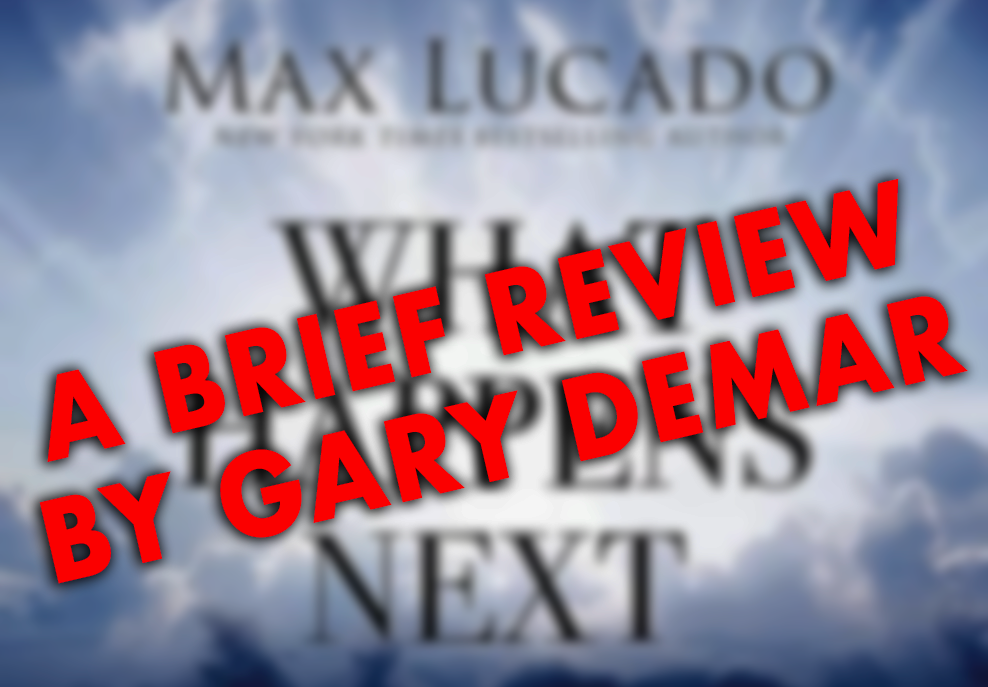Bible Prophecy Under the Microscope: Episode 7
Gary discusses Max Lucado’s new book, What Happens Next: A Traveler’s Guide Through the End of This Age.
While referring to Daniel’s prophecy of the 70 weeks of years (9:24-27), Lucado writes, “This gloomy prophecy was fulfilled on August 6, AD 70. Titus of Rome destroyed Jerusalem, killed a million Jews, and tore the temple apart stone by stone” (43) as predicted by Jesus in Matthew 24:1-3. Curiously, he does not cite a dispensational author for his statement. He references Tyler Perry’s “The Siege of Jerusalem in 70 CE” from the World History Encyclopedia.
Not willing to leave well enough alone, Lucado can’t see the destruction of Jerusalem as predicted by Jesus as fully fulfilled prophecy. He must account for the final week of seven years because that’s what dispensationalism requires. He does not explain how the 70 weeks of years get to AD 70. He then asks, “What about the remaining seven [years]?” (44) “When the Jews rejected their Messiah, God pressed pause.” (44) Where in the Bible does it say this. The Jews did not reject Jesus. Some of them did and some of them didn’t. Read the book of Acts. It has always been this way, and it continues to be this way (Rom. 9-11).
He then goes into the Rube Goldberg of exegesis—dispensational premillennialism: a 2000-year gap, another rebuilt temple, animal sacrifices, the rise of “the antichrist,” a pact with the Jews, the Jews are fooled by the overture of “the antichrist,” a seven-year treaty, the rebuilt temple seized, “etcetera, etcetera.” He ends his nearly two-page explanation with “Is your head spinning?” (45). Of course it is, because as Lucado writes, “it’s a musterion” (mystery). “That’s the Greek word Paul used to describe this parenthetical period.” (46) Paul does not say one word about Daniel’s prophecy and a “parenthetical period.” The mystery is “that through the gospel the Gentiles are heirs together with Israel [to the Jew first and then the Greeks: Rom. 1:16], members together of one body, and shares together in the promise in Christ Jesus” (Eph. 3:4-6). Lucado claims it’s these verses that refer to the supposed parenthetical “church age.”
Lucado claims that its this “timeline” that explains “what happens next.” Everything that follows in his book must fit somewhere on the timeline after the rapture of the church and Daniel’s 70th week of seven years.

FREE PDF: A Brief Review of Max Lucado’s 'What Happens Next'
A FREE PDF download to accompany this episode of Bible Prophecy Under the Microscope.
Buy NowGary deals with Max Lucado’s new book, What Happens Next: A Traveler’s Guide Through the End of This Age. It’s a rehash of hundreds of prophecy books going back a hundred years or more. There is very little exegesis found between its covers. Lucado mentions dispensational authors Mark Hitchcock and David Jeremiah as people he consulted. Their books do include exegetical work, but the operating assumptions are based on dispensational premillennialism.

